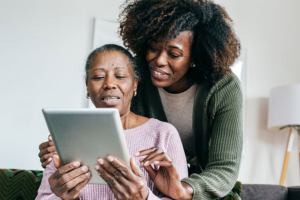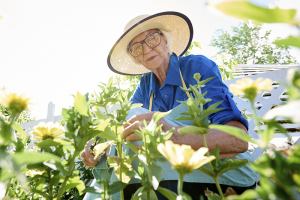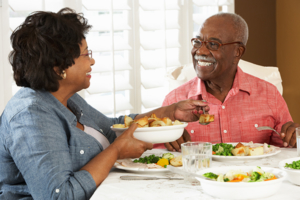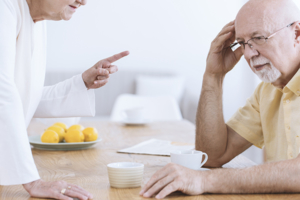How Technology Is Making It Easier for Seniors to Age in Place

Technology can help seniors age in place with peace of mind.
“You are always free to choose what you do with your life. To make changes in your future, make new choices today.” – Brian Tracy
It’s not always easy to choose where to live as you age. The majority of seniors would like to age in place in the comforts of home for a lifetime; however, it’s not without challenges. Can it be safe? What about mobility issues or other physical limitations? What if a senior falls and cannot get up?
Fortunately, there are a large variety of solutions which make aging in place possible for older adults. For example, technology is constantly developing and evolving, providing solutions to the difficulties that may surface as we grow older. Just consider a few of these tech devices and how they are improving life at home for seniors!
Home Safety
Smart devices provide peace of mind to a senior living alone as they age in place – and to the members of the family who love them. Aging adults can choose specific devices that solve a particular problem, like a smart door lock, doorbell, or fire alarm. They can also choose an entire smart security system with all of these features and much more.
Additionally, a smart speaker system such as Amazon Echo or Google Nest Audio works by voice command, a vital component to a home technology system. This way, a senior can simply say what they need, even if they need to call for help, and technology takes care of it.
Remote Patient Monitoring
Remote patient monitoring connects patients to their doctors in innovative ways: wearable devices to trace vital signs, smart pill bottles with sensors, bio-ingestible capsules older adults can swallow, even electronic tattoos that will measure the progression of pneumonia. This solution is a step further than telehealth appointments, delivering more comprehensive data on an individual’s condition than can be detected via a video chat.
Whole Home Automation
For seniors who are ready to jump into technology with both feet, a central control system will allow for a variety of functions to be done at the touch of a tablet or smartphone, such as lights, security cameras, sensors, window shades, thermostat, music, Wi-Fi, and so much more.
Michael Miller, author of My Smart Home for Seniors, sums up the advantages of technology for seniors: “Technology helps all homeowners, but especially seniors, by automating things that are a pain or difficult to do.”
Of course, a human touch is definitely essential for safe and independent living at home, regardless of how many tech tools we utilize! Contact Responsive Home Care online or at (954) 486-6440 for individualized caregiver services in Fort Lauderdale and the nearby areas that will help seniors live life to the fullest.




